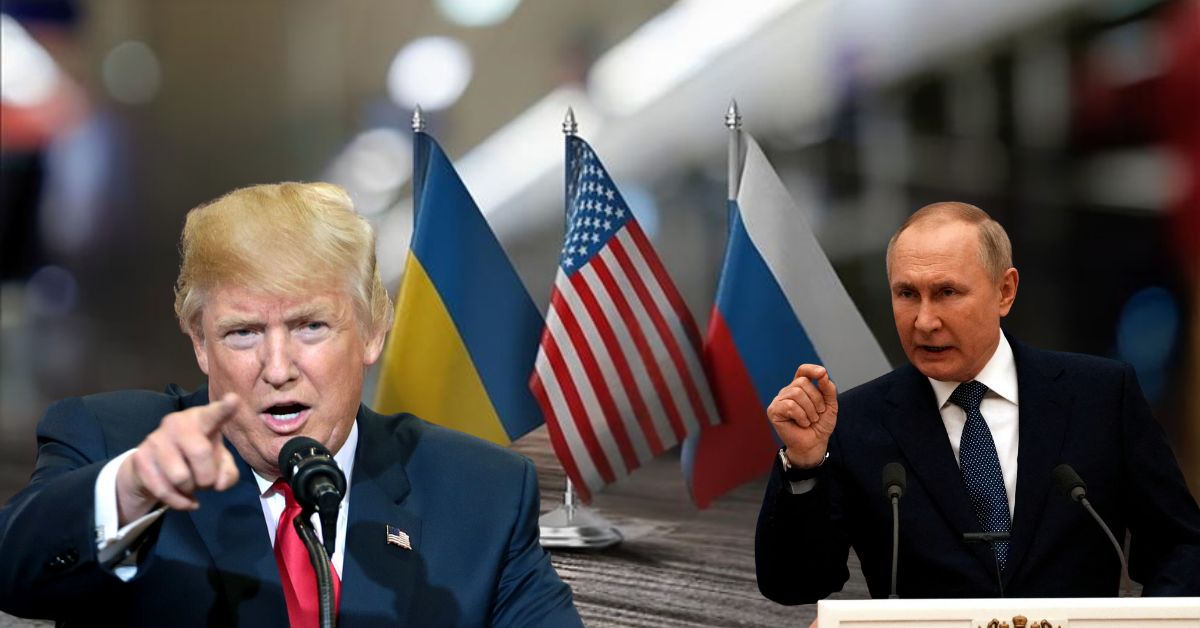In recent months, Trump patience with Putin has garnered global attention as diplomatic relations between the United States and Russia reach new levels of tension. The evolving narrative centers on former President Donald Trump’s unequivocal statements indicating a rapidly diminishing tolerance for President Vladimir Putin’s assertive foreign policy moves. This article explores why Trump’s patience is wearing thin, the broader geopolitical implications, and how these developments could reshape the international landscape.
Table of Key Points
| Section | Key Highlights |
|---|---|
| Introduction | Trump’s shifting stance; rising global tension with Russia |
| Historical Background | Evolution of US-Russia relations under Trump |
| Recent Developments | Key incidents accelerating the patience breakdown |
| Strategic Implications | Impact on NATO, Europe, and global alliances |
| Expert Opinions | What analysts and diplomats are saying |
| Conclusion & Call to Action | Recap and invitation for discussion |
Understanding Trump’s Patience with Putin: An Overview
When examining the phrase Trump patience with Putin, it’s essential to note the dramatic shifts in rhetoric over recent years. During his presidency, Donald Trump was often critiqued for his relatively conciliatory approach toward Russia. Yet, current escalations—ranging from ongoing conflicts in Eastern Europe to cyber aggression and energy politics—have forced a reckoning: Trump patience with Putin is running out fast.
Factors fueling this shift include:
- Increased Russian military activity near NATO borders
- Continued interference allegations in Western political systems
- Barrages of cyberattacks targeting US infrastructure
- Moscow’s unwavering support for adversarial regimes
The Historical Context: Trump and Putin’s Complex Relationship
Early Days: Cooperation or Caution?
The early days of Trump’s administration were marked by a cautious optimism regarding US-Russia relations. While some hailed the opportunity for a fresh start, others were wary of the complexities inherent in dealing with Vladimir Putin, a leader known for his strategic, sometimes unpredictable decisions.
Key Moments in US-Russia Relations Under Trump
- 2017: Trump’s first summit with Putin, emphasizing dialogue and mutual respect.
- 2018: Helsinki summit criticism for perceived leniency.
- 2019: Imposition of new sanctions against Russia despite ongoing communication.
Initial Patience: Motives and Repercussions
Trump’s early patience stemmed from a desire to stabilize international relations and pursue economic cooperation. However, this approach drew criticism for being too conciliatory, especially as Russia ramped up aggressive activities in Ukraine and Syria.
Why Trump patience with Putin Is Running Out
Escalating Tensions: Recent Flashpoints
Today, the global stage is witnessing an unprecedented American-Russian standoff. Key events fueling Trump’s shifting tone include:
- Ongoing Ukraine Conflict: Despite repeated calls for de-escalation, Russian aggression persists, leading to immense humanitarian crises.
- Election Interference Allegations: Intelligence agencies cite evidence of Russian disinformation campaigns targeting US democracy.
- Cyber Warfare: High-profile ransomware attacks attributed to Russian entities have tested America’s cybersecurity resilience.
- Energy Wars: Moscow’s manipulation of natural gas supplies threatens European stability and US interests.
Voices from the Trump Camp
Increasingly, Trump and his advisors have signaled waning patience. Public statements highlight frustration with Putin’s refusal to engage constructively, suggesting a potential pivot toward stronger deterrence measures.
Strategic Implications: How the Shift Affects the World
Impact on NATO and European Security
A hardening US posture directly influences transatlantic relations. With Trump patience with Putin dwindling, NATO is revitalizing its collective defense strategies:
- Expanded troop deployments in Eastern Europe
- Joint military exercises to deter Russian aggression
- Enhanced cybersecurity coordination among allies
Shifting Global Alliances
As American patience runs out, countries in Asia and the Middle East are reevaluating their commitments and allegiances. Nations seeking to avoid entanglement may adopt more neutral stances, while others rally closer to either Washington or Moscow.
Expert Opinions: What Diplomats and Analysts Are Saying
Analysts Forecast a New Era in US-Russia Relations
Prominent foreign policy analysts believe Trump’s new stance reflects “realpolitik” calculations—acknowledging that sustained appeasement emboldens Russian brinkmanship.
“The era of unchecked Russian adventurism may be ending if Trump translates rhetoric into policy,” notes Dr. Alexandra Holden, a leading expert on Eastern European studies.
Diplomats Urge Balanced Approach
While some welcome renewed assertiveness, others caution against overextension, highlighting the risks of spiraling toward open conflict.
The Future of Trump Patience with Putin
Possible Scenarios Ahead
- Hardline Sanctions: Increased sanctions targeting Russian financial and energy sectors.
- Diplomatic Isolation: Expulsion of Russian diplomats, suspension from international forums.
- Expanded Military Posture: Permanent NATO presence on Russia’s borders; increased US naval operations.
- Cyber Retaliation: Countermeasures against Russian cyber infrastructure.
Each scenario presents opportunities and risks, underscoring the high stakes of this rapidly changing diplomatic landscape.
Conclusion: Trump Patience with Putin—What Comes Next?
As global observers monitor every statement and maneuver, one fact remains clear: Trump patience with Putin is at a crucial breaking point. The future of US-Russian relations hangs in delicate balance, with decisions made today likely to echo for years to come.
In summary:
- Trump’s patience with Putin has shifted from cautious engagement to open frustration.
- The consequences will impact not just America and Russia, but allies and adversaries worldwide.
- The world must prepare for an era where diplomatic missteps could carry outsized repercussions.
Get Involved: Share Your Thoughts!
What do you think about the current state of Trump patience with Putin? Is a tougher approach necessary, or should diplomacy prevail? Share your views in the comments, join the conversation, and stay tuned for more updates as the situation develops.
